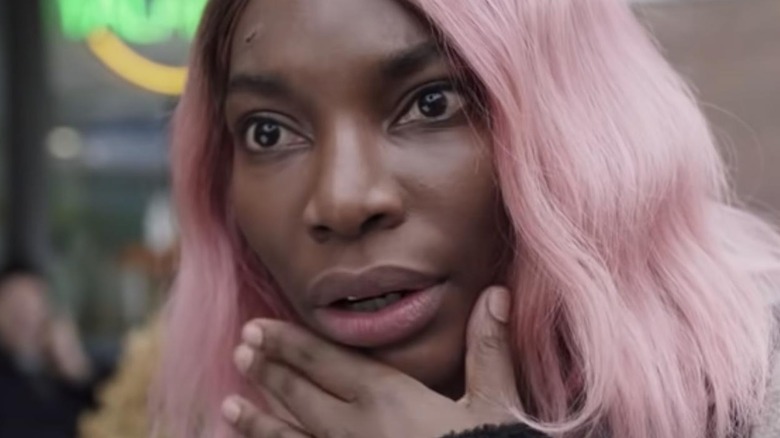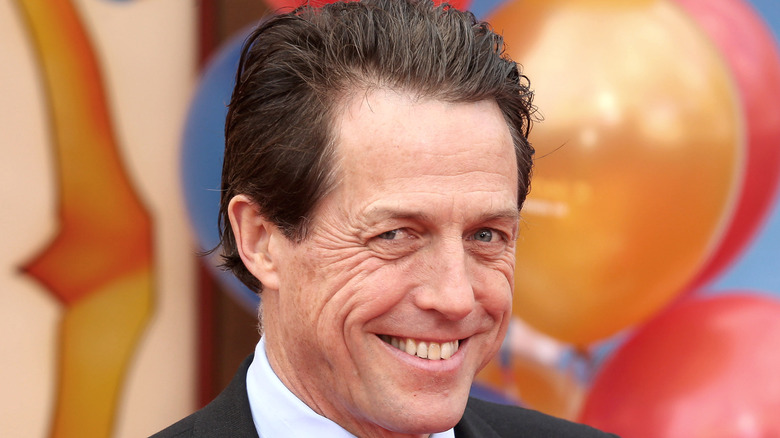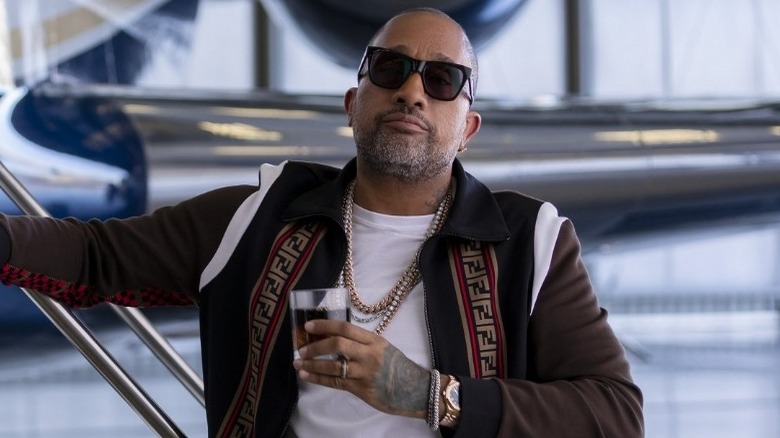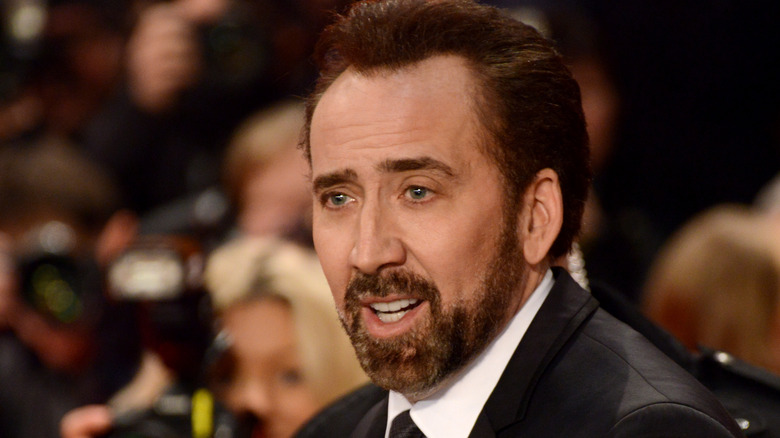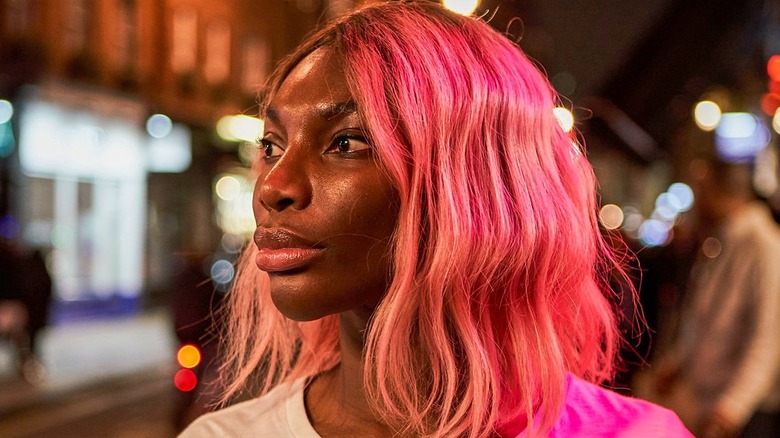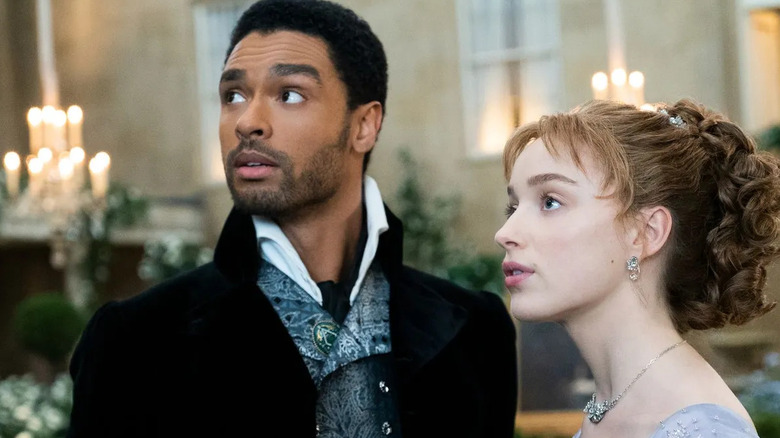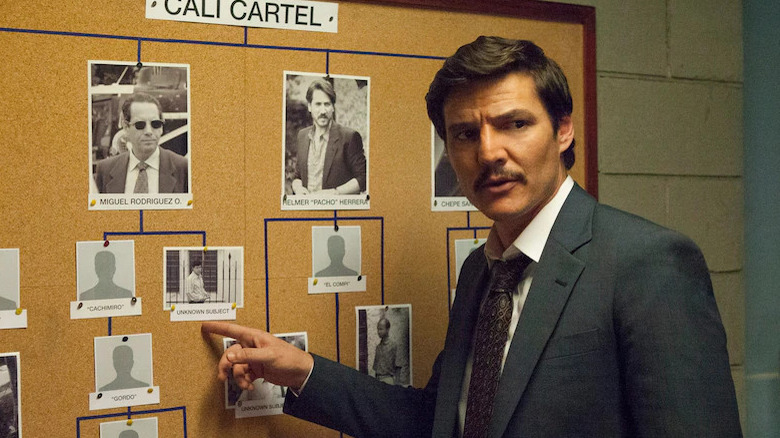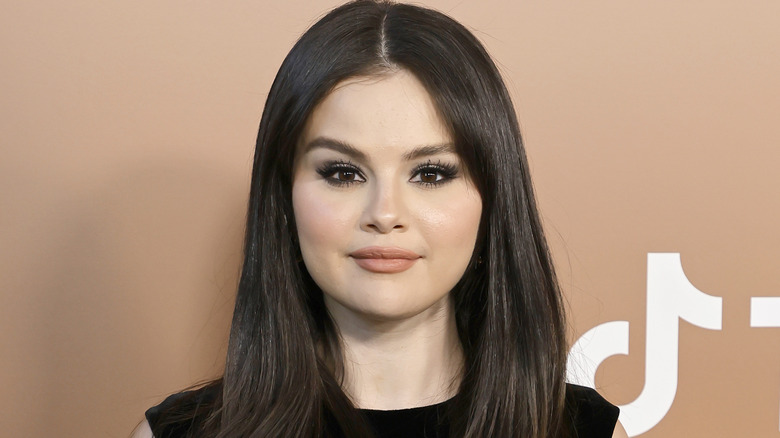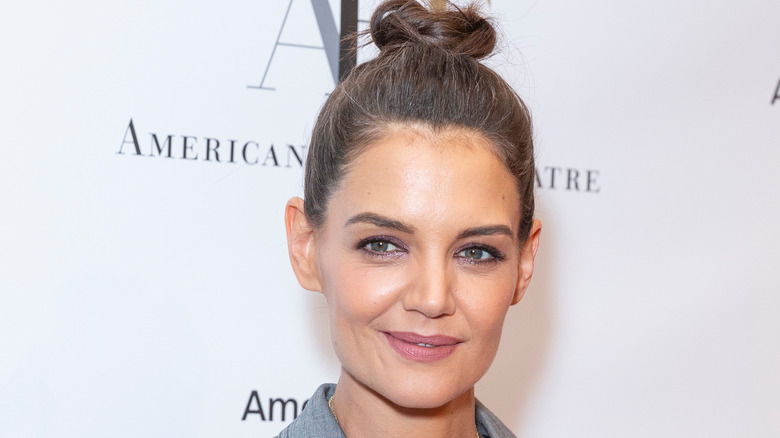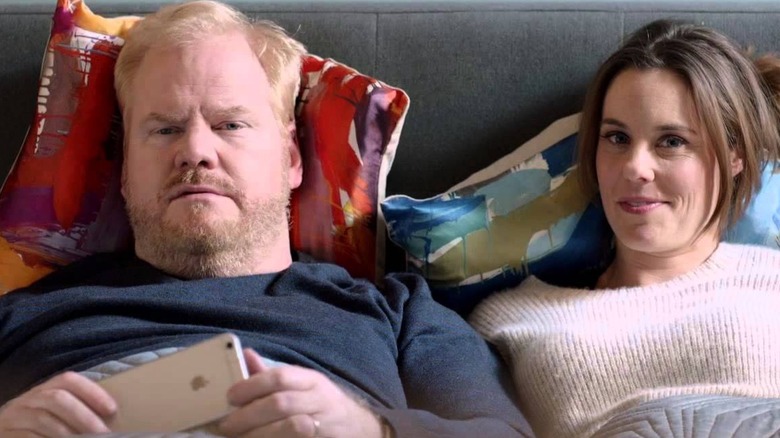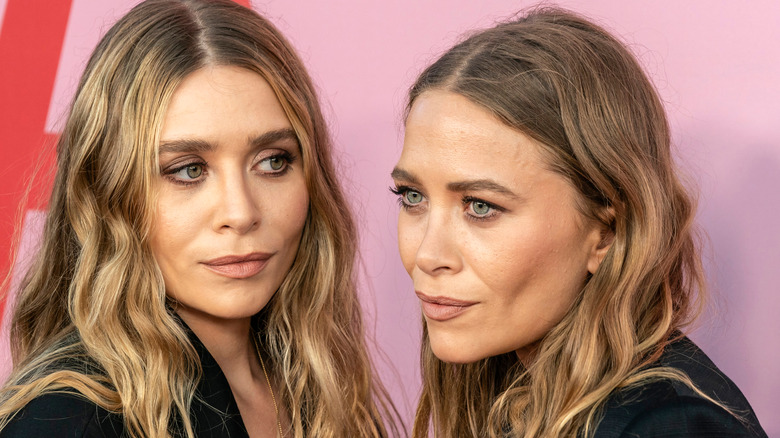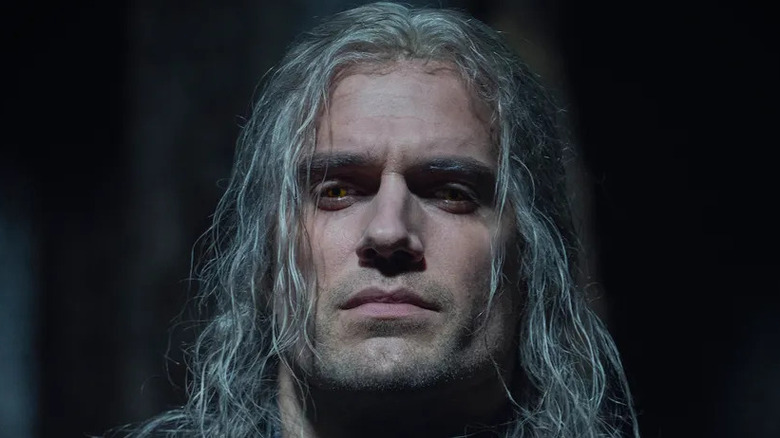TV Actors Who Said No To Netflix
For nearly a decade, Netflix has been at the forefront of culturally influential TV shows. Shows like "Stranger Things" and, more recently, "Wednesday" have created stars and penetrated pop culture.
Given Netflix's reputation for big budgets, aggressive marketing, and film-quality production values, most actors jump at the chance to appear in Netflix Originals. In fact, it's difficult to think of instances when actors have declined to appear in a Netflix series for more than mere scheduling conflicts, even though actors routinely reject iconic roles in Hollywood at large (think Will Smith declining Quentin Tarantino's Academy Award-winning "Django Unchained" because, according to The Hollywood Reporter, he wanted it to be a love story rather than a vengeance story).
Although actors rarely reject Netflix, it does occasionally happen, and the reasons are as interesting as the performances themselves. Sometimes projects simply don't fit in with their vision or their long-term career goals. Some talent has also vowed to boycott Netflix over controversies like Dave Chappelle's "The Closer," though thus far no one has turned down a Netflix offer for this reason (via Newsweek).
It's fun to imagine what certain iconic TV shows would be like with a different cast — say, if Mathew Broderick had not turned down the role of Walter White on "Breaking Bad" — so let's take a look at the actors who have rejected Netflix opportunities and their reasons for doing so.
Hugh Grant (Black Mirror)
News of "Black Mirror's" return was widely celebrated on the internet. During the pandemic, the show's creator indicated that he took a long sabbatical from the show since the world was already bleak enough (per EW). Few can deny that the show's capacity to analyze contemporary society's technologically dominated era is unparalleled. Furthermore, the show's anthological approach allows it to continuously find new ways to remind fans that technology can also be our greatest adversary if handled without consideration.
Despite the doom and gloom that "Black Mirror" preaches, it usually sneaks in a zany tone that makes the audience laugh out of nervousness. That was the case when the first episode of the show, "The National Anthem," premiered. The plot revolved around a prime minister dealing with a crisis in which kidnappers abducted a royal family member and demanded a video of him having sex with a pig to secure the royal's release. The episode is one of the most memorable in the show's history, but viewers may not be aware that the role of the prime minister was initially offered to Hugh Grant.
Hugh Grant is one of Britain's most recognizable actors, so it's easy to imagine his schedule being too packed for new projects. Given the somewhat crass nature of the story, it's also possible he didn't want to be associated with the role, especially given a certain career embarrassment in his past. He may have had no interest in playing a prime minister again, having done so in "Love Actually." The real story, though, was a little more amusing. In an interview with Digital Spy, he claimed he simply couldn't recall why he turned down the role.
Kenya Barris (Black AF)
When every other Hollywood studio realized that Netflix had a monopoly on the streaming market, they started to respond by becoming direct competitors. Their first order of business was to pull their shows from Netflix and place them on their own streaming apps. With limited options, Netflix determined that the best way to respond would be to flex their financial muscles and lure the most powerful Netflix showrunners in Hollywood, such as Ryan Murphy, Shonda Rhimes, and Kenya Barris, and provide them with everything they need to create original shows for Netflix.
Kenya Barris, for example, had found success with "Black-ish" and its numerous spin-offs, in which the plot follows a successful black man tailoring his politics to his children's relatively privileged upbringing, which contrasts substantially with his own. Its success was primarily due to Kenya Barris' utilization of material from his personal experiences, which made his sitcoms accessible and witty. When Barris launched his debut Netflix series "Black AF," he tried to take this concept even further by not only writing and creating the show but also acting in it alongside the illustrious Rashida Jones.
It's worth noting that Barris transitioned from network television to Netflix because he desired more creative freedom. However, it immediately became clear that his concept was too niche, even by Netflix standards. So, even though "Black AF" was initially renewed, Barris told The Hollywood Reporter that he opted out of a second season and is instead considering turning the show into a film.
Nicolas Cage (Master of None)
While most actors opt to be cordial and blame their refusals on scheduling conflicts or artistic differences, some do not need to explain themselves at all. Such was the situation when Aziz Ansari approached Nicolas Cage about making a cameo appearance in his Netflix series "Master of None."
When Cage was offered the role, "Master of None" was one of the most critically lauded shows at the time, and there was not yet any controversy surrounding Ansari. Co-created by Ansari, the series was based on his unique experience of finding love in New York City. Aziz played Dev, an actor still looking for his break in the film industry, and many of the show's gags revolve around Dev's desi ethnicity being a hindrance to his career growth. To authenticate their story world, they offered Cage a cameo role in a fake movie within the show.
According to Indiwire, Ansari said they received a quick no from Nicolas Cage. There was no further explanation. What makes Cage's decision so intriguing is that he is generally incredibly generous with his talents — some would argue that he is sometimes too generous, possibly because he needs to pay off real estate debts (per Collider). Furthermore, he recently appeared in a film in which he played himself. So it's unclear why he passed on Netflix's "Master of None."
Michaela Coel (I May Destroy You)
Michaela Coel won an Emmy for her work on the HBO drama "I May Destroy You," which she also produced. However, given that HBO and the BBC had to negotiate a complicated co-production agreement for the drama to show in the United States, it's surprising to learn that Michaela Coel had previously been offered a more straightforward Netflix option.
Way before BBC struck a deal with Coel for "I May Destroy You," she was already in the finalizing stages of her negotiation with Netflix for the same show. Netflix offered her $1 million for full rights to her show, but Coel asked for 5% instead. CNBC reported the negotiation then bounced back and forth until the deal finally fell through. That's how Coel eventually found a home for her show at BBC, where she received complete creative control and rights to her work.
That's understandable, given the show's sensitive subject matter. Arabella Essiedu (Michaela Coel) is the show's protagonist as she struggles to remember what occurred on a night out when she was sexually assaulted. Because her personal experience inspired the plot, she was naturally protective of the material. That shows that even Netflix can be outbid from time to time — if not by cash, then by terms.
Regé-Jean Page (Bridgerton)
When "Bridgerton" was released, it was the biggest show of the year: Netflix disclosed the viewing data and stated that the show was the most viewed show in Netflix history at the time of its debut (via Deadline). The show's breakout actor, Regé-Jean Page, who played the lead, Simon Basset, was right in the center of the buzz.
"Bridgerton" is set in the Regency era and follows several members of the Bridgerton family on their season-long search for love. Due to the anthological structure of the show, Page was not expected to return to his role for the second season once the first season ended. However, the creators approached Page to appear as a guest actor in a couple of episodes. Despite a generous salary raise, Page turned down the opportunity.
Page apparently desired to advance his career and test his talents in various roles. That's natural for a rising star speculated to be in the running for roles such as James Bond. Other actors want to remain a journeyman throughout their careers, and sticking to one role, no matter how big the opportunity, might typecast them in the eyes of fans and casting directors alike. Unfortunately for "Bridgerton," some fans just can't imagine the show without him (via TIME).
Pedro Pascal (Narcos)
The first two seasons of "Narcos" follow the rise and fall of iconic Colombian drug lord Pablo Escobar through the eyes of the investigators who helped bring him down. Pedro Pascal portrayed Javier Peña, one of the co-leads. The show received critical praise and arguably inspired the subsequent flurry of biographical limited series of the most heinous people in modern human history.
Unfortunately, these shows generate criticism because they depict people who are still living. Viewers don't always appreciate being forced to relive certain events. In the case of "Narcos," the people most affected are some of today's most ruthless outlaws, and being targeted by them is a complete nightmare.
According to NME, Pablo Escobar's brother urged Netflix not to film the show in Colombia without their permission and even threatened to shut down the show if he was not paid $1 billion. Furthermore, a crew member named Carlos Muñoz Portal was slain during location scouting in Mexico in 2017; sadly, the violent crime remains unsolved. This prompted Pedro Pascal to speak out, stating that the show could not be made if it was not safe. Pascal soon after exited the show. However, the showrunner later revealed Pascal's exit to be a little more planned than it first looked, and he even likes to think Pascal could still come back to the show.
Selena Gomez (13 Reasons Why)
Netflix receives criticism for its shows as well as praise. Take "13 Reasons Why," which explores the aftermath of a high school suicide. The show focuses mainly on the sometimes-hidden traumas that afflict teenagers.
Selena Gomez and her mother had worked on the project for years before Netflix picked it up. According to Gomez, the initial goal was for the show to be a transitional piece allowing her to present herself to the public in a more mature role than in her Disney days. The show was based on Jay Asher's book of the same name, so it came with a built-in audience.
However, a project's strengths can also be its weaknesses. While the original material already had a fanbase, it also promised expectations. Some viewers were also offended by the portrayal of suicide in "13 Reasons Why." The show went out of its way to stay true to the book in this regard, so there wasn't much Gomez could do about that as an executive producer.
Gomez could, however, ensure that the casting appropriately conveyed the theme being portrayed in the story. She must have thought she wasn't the appropriate fit for the part. Gomez reaffirmed this when she told The Hollywood Reporter that she decided not to act in the series out of concern about upsetting the audience.
Katie Holmes (Orange Is the New Black)
Katie Holmes was once regarded as one of Hollywood's most compelling actors. She had a naturally charming personality that she brought to every part she played. "Orange Is the New Black" creator Jenji Kohan spoke with E! News, admitting that she always admired Holmes and had hoped to cast her in her show.
Kohan then also admitted that when she offered the show to Holmes, she and her team were still deciding on the show's direction. Holmes, who was taking few starring roles at the time, turned her down to focus on other areas of her life. Taylor Schilling got the part instead and received an Emmy nomination for her efforts, so everything worked well in the end.
If viewers wonder if they will ever see Katie Holmes on screen again, the answer is yes. She has recently focused her talents behind the camera. She directed and starred in "Alone Together," a pandemic lockdown drama that premiered at the 2022 Tribeca Film Festival. As for Katie Holmes playing "Orange Is the New Black's" Piper, fans will just have to use their imagination.
Jim Gaffigan (The Jim Gaffigan Show)
Working in comedy clubs, touring, and eventually creating a TV sitcom has traditionally been the path to the summit for stand-up comedians. Jim Gaffigan was well on his way down this road, having built a name for himself through stand-up comedy and guest appearances on TV shows. Jim and his writing partner, Jeannie Gaffigan, were pitching the idea for "The Jim Gaffigan Show" to different networks.
After CBS passed on their project, the team contacted Netflix with it, and they informed the Decider that the money Netflix offered simply wasn't enough to realize their vision, so they chose TV Land. The Gaffigans believed they could turn their show into something monumental for TV Land, but unfortunately, the show only ran for two seasons.
Within the same interview, Jeannie Gaffigan explained that the budget required for their production was substantially higher than what Netflix offered due to the caliber of the actors on the show. That's not a lie; the show's guests routinely included celebrities like Jon Stewart, Jerry Seinfeld, and Hannibal Buress. It's a great show, but the money Netflix offered them for it was simply insufficient.
Ashley and Mary-Kate Olsen (Fuller House)
Reviving old and current shows from other networks is one of Netflix's numerous ways of tugging at fans' heartstrings. One popular example was the "Full House" revival "Fuller House." When the show was announced, viewers speculated whether Ashley and Mary-Kate Olsen would reprise their shared role as Michelle Tanner.
The sisters made it clear that they have no interest in returning to the show. "Fuller House" executive producer Bob Boyett reportedly told Insider that Ashley Olsen no longer feels comfortable in front of the camera. Since the end of their childhood stardom in the early 2000s, the twins have steadily distanced themselves from Hollywood and are solely focused on their careers in the fashion industry.
Despite their celebrity upbringing, the two have led very low-profile lives. It's also unclear how the two would have performed in the same role as adults, so the rejection was most likely for the best.
Henry Cavill (The Witcher)
Sometimes actors leave shows without explanation, creating a mystery that irks fans. Such was the situation when Henry Cavill abruptly left "The Witcher" on Netflix without explaining why. Deadline's sources revealed that Cavill just felt like it was time to move on, having originally agreed to appear in the series for only a short time and feeling overwhelmed by other scheduling commitments (like the upcoming reprisal of his "Superman" role). Nonetheless, speculation is still ongoing over whether there's a deeper reason.
What makes it more confusing is Cavill is a noted avid gamer and was a huge fan of the source material. Moreover, the source material's author loved Cavill's performance as the show's protagonist, Geralt.
Cavill's exit has sent shockwaves through the show's fanbase. Luke Hemsworth eventually took over for Cavill, who wished Hemsworth the best of luck with the character. That was in good taste, but Cavill will always remain Geralt to certain fans. Hopefully, time will reveal if Deadline is correct or if fans are right to suspect that he just hated the writing (via Reddit).
